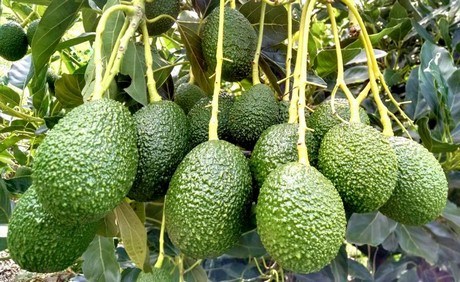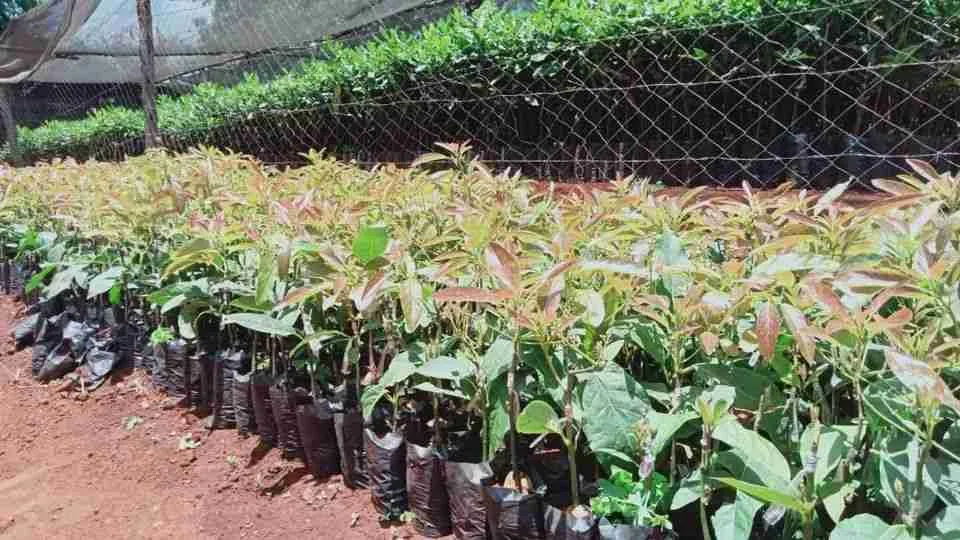Why Hass farming? Let us start there…
Hass is the current golden crop around the world, a cash king now neck to neck with traditional money makers like coffee and tea, this has been driven by astronomical rise in global demand and popularity of the scrumptious oily berry.
Who is the consumer?
Export market is the biggest market, wiping out all quality produced Hass avocados in Kenya. Major markets are to be found in Europe and the Middle East. The liberalization of China coupled with reduced restrictions and growth of purchasing power has expanded the market, increasing demand in the export market.
After quality selection, the remaining low quality fruits still fetches good prices in the local market for consumption or oil processing. There are a number of factories currently established in Kenya that process avocados for oil and other products like mature. Local available companies includes Avodemia, Avo oil, Olivado, Keitt, Persea oil and others.
This means that with Hass farming nothing goes to waste. The demand and preference is there, and growing, for both local and foreign customers.
Avocados will become the most traded fruit by 2030 and
Kenya has doubled its avocado production over the past five years. According to the latest official FAO statistics, Kenya is now the world’s sixth-largest avocado producer, with a planted area of nearly 26 000 ha and a production of 417 000 metric tonnes in 2021
Kenyan avocado exports to China hit Ksh9 billion ($64.38 million) in the three months to May, defying steep competition in the market from Chile — a top producer of the fruit globally.
Kenya is now the biggest exporter in Africa.
Investment Benefits to a Farmer
It is prudent to first invest into water and irrigation system because Hass avocado trees are water intensive and can produce fruits all year round. Irrigation will supplement rainwater and ensure there’s sufficient moisture for this continuous production.(add site link)The first harvest comes after the second to third year depending on the climatic conditions, soil type and availability of water. A farmer can harvest 50-100 fruits per tree per season. (Hass avocado yield per tree)
After the fourth or fifth year, one tree can yield 400-800 fruits per season and gradually to at least 1000 fruits in the sixth and seventh year and more as tree gets older and bigger.
Hass avocado yields income depending on the fruit size which is graded from size 30(smallest) to 14(biggest).
Hass farm gate prices starts at a minimum of sh.5 and goes as high as sh.20 for a single fruit while ripe avocados in local market sells between sh.20 - sh.40 depending on the size. For exporters with direct access to export markets the minimum price rises sh.70 per fruit depending on the size.
Agronomy
Proper Hass avocado investment like other high value crops must start with investment in proper Consultancy research and planning. These are integral ingredients for a successful venture. An experienced agricultural professional either an agronomist, a horticulturist or agricultural extension officer will provide guidance after location assessment. Among benefits that a professional will take you through include:
- Climate conditions and challenges you are likely to experience
- Soil conditions such as type, depth (profile) and drainage
- Availability of water and quality.
- Agronomy practices including Hass avocado spacing you require and crop management practices.
- What Hass avocado varieties, purity, the quality and from which nursery you can source these desired qualities from and their characteristics.

Hass Avocado benefits
- It has more fat than other varieties making it smoother and creamier
- Hass avocados have longer shelf life making it easier to ship for long distances
- The fruit size also makes it easy to handle and pack.
- Has a lot of health benefits that you can research and read about.
What are Hass avocado challenges
Hass avocado farming faces challenges as any venture. Agronomic challenges can be overcome or avoided if farmers adhere strictly to advise on agronomy section above. Some of the challenges that can affect your profitability are:
Diseases such as root rot, anthracnose, fusarium and verticillium wilt. These require proper soil and trees management.
Pests such as fruit-flies, false codling moth(FCM), thrips, mites and mosquito bugs. These pests are very destructive to fruits if not properly managed through use of traps and other integrated pest management practices.
Post-harvest handling is the least talked about but one of the major challenges facing farmers.
Avocado harvesting requires strict fruit handling. A farmer must pay attention on what and how they want the fruits to be picked, packed, transported, loaded and unloaded.
Removing the stalk or wrong clipping, scratch damages and throwing will affect marketability during grading, they’ll have more rejects hence low income.
Other challenges occur when immature fruits are picked, immature fruits have poor prices both on the local market and exports market and sully Kenyan avocado industry image.
History and certified Kenya organization
Avocados are evergreen trees that thrive best in subtropical and tropical regions. The fruit is also one of the most cultivated species in the world and is native to Mexico and South America. The fruit was introduced to other parts of the world in the 18th -19th century. The scientific name of Avocados is Persea Americana L.
Avocados were introduced in the country by the Portuguese during the 18th century. By 1939, improved varieties such as the Lula, Nabal, Puebla, and Linda had already been introduced.
In Kenya, avocados are grown for the local market, but varieties such as the Hass are produced for export. The fruit contains minerals such as vitamins A, B1, B2, C, and D. The first commercial Avocado orchard was set up in 1923 by the Anderson family in present-day Kitale. Currently, the family grows the fruit on a 200-acre land around Mt Elgon.
Avocado Society of Kenya The society’s work is to promote Avocado growth in the country and make it profitable for its members. Most avocado farmers are members to AVS. Benefits of being a member of the organization include trainings and provision of information with regards to avocado Hass production.
KALRO is a government entity that graft the seedlings, also promote Hass growing throughout the country.

